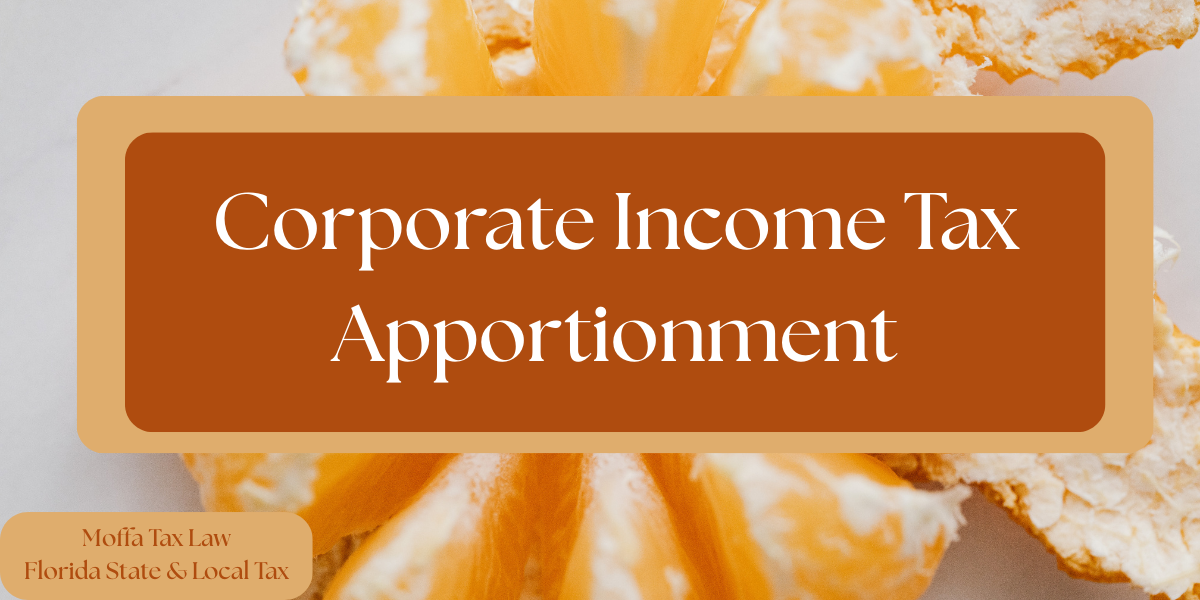NEWS & INSIGHTS


From Cost-of-Performance to Market-Based Sourcing: State Apportionment Shifts in 2025
In its May 6, 2025 Apportionment Report, the ABA State and Local Tax (SALT) Committee outlined a continuing trend in state corporate income tax policy: shifting from cost-of-performance (COP) to market-based sourcing. As more states transition to market-based rules for sourcing sales of services and intangibles, the patchwork of state apportionment formulas grows even more complex for multistate taxpayers.
📍 Background: Why Sourcing Matters
Under traditional COP sourcing, sales are assigned to the state where the service is performed. Market-based sourcing, in contrast, assigns sales to the customer’s location. These differences can significantly impact how much income a business pays to each state, especially for service-based and intangible-revenue companies.
📈 Key 2025 Legislative Changes
- Kansas: Adopted market-based sourcing for tax years beginning January 1, 2025. Previously, Kansas used COP sourcing. The new law aligns Kansas with most of its neighbors and aims to modernize its corporate tax base.
- Arkansas: Also moved to market-based sourcing effective January 1, 2025. The change applies to both services and intangibles, signaling Arkansas’ intent to streamline its corporate income tax regime.
⚖️ The Split Remains: COP vs. Market-Based
Despite the movement, not all states are on board. As of May 2025, the following states continue to apply a traditional cost-of-performance rule:
- Alabama
- Connecticut
- Hawaii
- Indiana
- Missouri
- Montana
- New Mexico
- North Carolina
- North Dakota
- South Carolina
- West Virginia
This divide makes compliance difficult for multistate taxpayers. A transaction that’s sourced to one state under a market-based rule may simultaneously be sourced to a different state under a COP rule, creating potential for double taxation—or no taxation at all.
🧩 Unitary Groups, Combined Reporting, and Sales Factor Weighting
The report notes that changes in sourcing rules also interact with broader apportionment issues, such as the use of single sales factor formulas and combined reporting regimes. Many states now give full weight to the sales factor, which magnifies the impact of sourcing rules on overall tax liability.
🔮 Looking Ahead
While momentum appears to favor market-based sourcing, the ABA SALT Committee cautions that states need to consider administrative clarity, statutory language, and transition issues. As more states legislate sourcing shifts, taxpayers will need to reassess their sales sourcing strategies, revisit nexus footprints, and prepare for increased scrutiny of intercompany transactions.
📌 Final Takeaway
The shift to market-based sourcing in 2025 is another sign that the state corporate tax landscape remains in flux. Businesses with multistate operations should closely monitor state legislation and prepare for more complex apportionment calculations, audits, and controversy as sourcing regimes continue to diverge.
Moffa Tax Law | Florida State and Local Tax Attorneys
COP sourcing assigns income based on where a service is performed or costs are incurred.
It assigns income to the location of the customer, regardless of where the service is delivered from.
Kansas and Arkansas both adopted market-based sourcing effective January 1, 2025.
To modernize their tax systems, capture revenue from out-of-state service providers, and align with national trends.
As of May 2025, states like Alabama, North Carolina, and West Virginia continue to use COP rules.
The rule determines which state gets to tax the income, which can shift large amounts of revenue between jurisdictions.
Yes—many states now give 100% weight to sales in their apportionment formulas, making sourcing rules even more impactful.
To monitor, report, and advise on tax policy changes affecting state and local taxation.
By updating sourcing practices, monitoring state legislation, and preparing for audit scrutiny.
Unlikely. States continue to adopt divergent policies based on political and economic priorities.
Share
Additional Articles by the SALTy Orange at Moffa Tax Law:
NEWS & INSIGHTS Inside the FTA’s May 2025 Committee Report: What State Tax Officials Are Watching Inside the FTA’s May…
NEWS & INSIGHTS State Conformity with the BBA Partnership Audit Rules: Where Are We in 2025? State Conformity with the…
How Florida’s Sales Tax Auditors Target Convenience Stores (and What You Can Do About It)”
NEWS & INSIGHTS How Florida’s Sales Tax Auditors Target Convenience Stores (and What You Can Do About It) Florida Department…

Jeanette Moffa, Esq.
(954) 800-4138
JeanetteMoffa@MoffaTaxLaw.com
Jeanette Moffa is a Partner in the Fort Lauderdale office of Moffa, Sutton, & Donnini. She focuses her practice in Florida state and local tax. Jeanette provides SALT planning and consulting as part of her practice, addressing issues such as nexus and taxability, including exemptions, inclusions, and exclusions of transactions from the tax base. In addition, she handles tax controversy, working with state and local agencies in resolution of assessment and refund cases. She also litigates state and local tax and administrative law issues.


